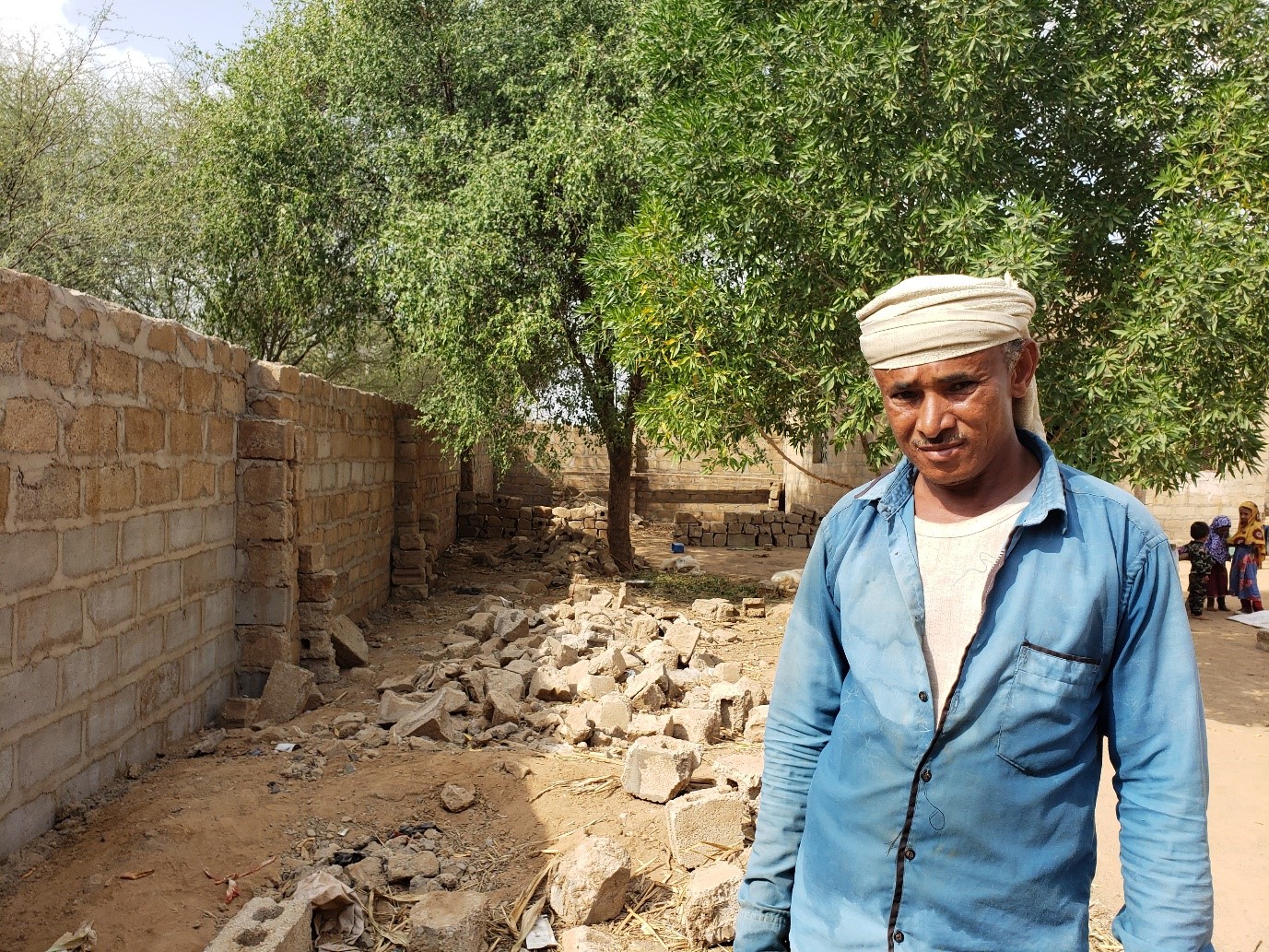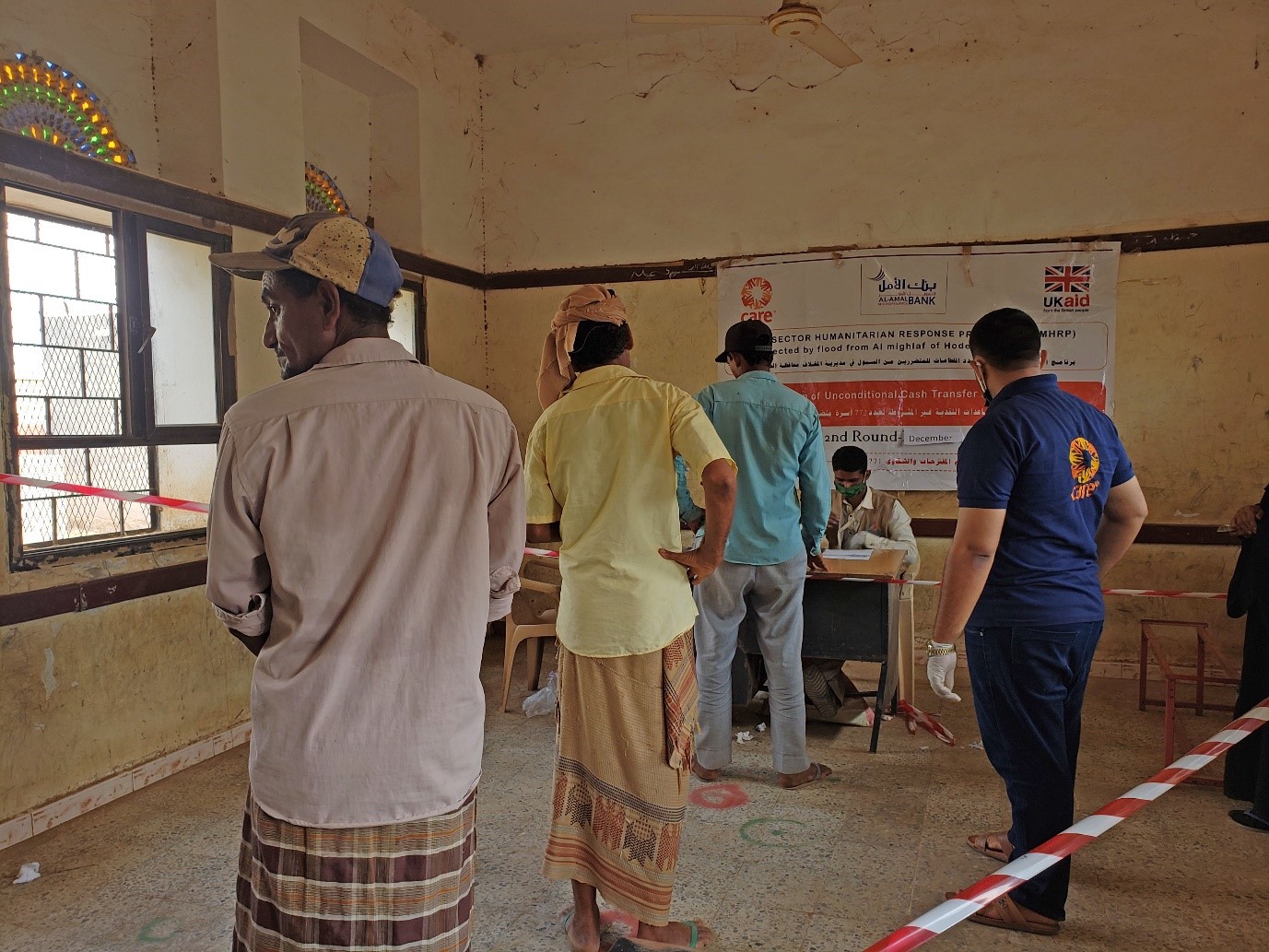Yemen has been severely affected by the heavy rains that hit different parts of the country in 2020. The flash floods caused numerous damages and even loss of life. According to the UN, an estimated 300,000 Yemeni people lost their homes, crops, livestock and possessions, and 148 people died. The deadly flash floods combined with the accumulated impact of years of conflict has worsened humanitarian needs across Yemen, which remains the world’s worst humanitarian crisis.
“The floods came unexpectedly that day,” says Ali Zebri, a 45-years-old father of six children from Al Meghlaf district of Al Hudaydah governorate. Ali works as a farmer for a daily wage. Every day, he walks to the neighbouring farms, looking for work to secure food and other basics for his family.
Al Hudaydah, Yemen’s principal port on the Red Sea, is one of the most flood-affected areas. Due to the high temperature and poor economic conditions in the coastal plain, residents often live in a one-room hut made of palm fronds and tree branches and surrounded by a wall.

